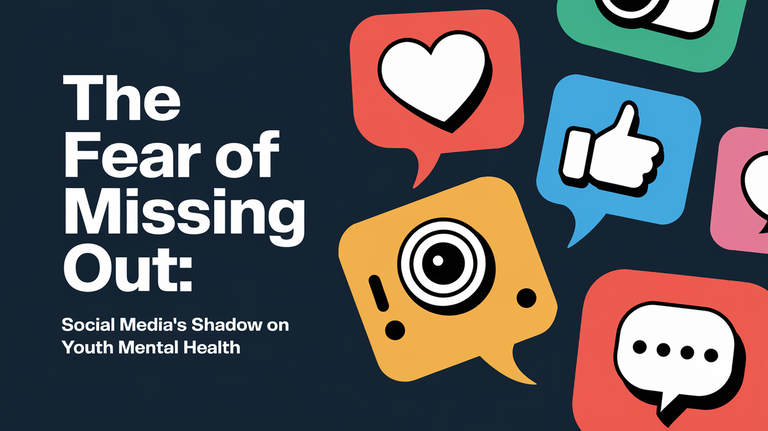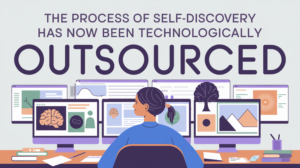In the age of hyperconnectivity, social media platforms have revolutionized the way we interact and communicate. However, this digital revolution has also brought about a darker side, casting a shadow on the mental health of young people. The pervasive ‘Fear of Missing Out’ (FOMO) has emerged as a significant consequence of social media use, leading to increased levels of depression and loneliness among the youth.
The Illusion of Perfect Lives
Social media platforms, with their curated feeds and highlight reels, often create an illusion of perfect lives. Users are constantly bombarded with images and updates depicting seemingly idyllic experiences, achievements, and relationships. This constant exposure can lead to feelings of inadequacy and discontent, as young people compare their own lives to the carefully crafted narratives they see online. The perception that everyone else is having a better time, enjoying more exciting experiences, and leading more fulfilling lives can fuel a sense of missing out.
The Pressure to Stay Connected
Social media platforms foster a culture of constant connectivity. The pressure to stay updated, respond to messages, and participate in online conversations can be overwhelming. This constant need to be “on” can lead to anxiety and stress, particularly among young people who are still developing their sense of self and navigating complex social dynamics. The fear of missing out on important information or social interactions can drive them to spend excessive amounts of time online, further impacting their mental health and well-being.
The Erosion of Real-Life Connections
While social media platforms can facilitate virtual connections, they can also contribute to the erosion of real-life relationships. The time spent online can displace face-to-face interactions, leading to social isolation and loneliness. Young people who prioritize online interactions over real-life connections may miss out on opportunities to develop meaningful relationships, build social skills, and experience a sense of belonging. The lack of genuine human connection can have a profound impact on their mental health, contributing to feelings of depression and isolation.
The Vicious Cycle of Comparison and Validation
Social media platforms often operate on a system of likes, comments, and shares, which can create a cycle of comparison and validation seeking. Young people may constantly evaluate their own worth based on the number of likes or comments they receive on their posts. This constant need for external validation can lead to anxiety and low self-esteem, particularly if they perceive themselves as not measuring up to their peers. The fear of missing out on social validation can drive them to engage in behaviors that are detrimental to their mental health, such as seeking attention through risky or self-destructive actions.
Addressing the FOMO Phenomenon
To address the FOMO phenomenon and its impact on youth mental health, a multi-faceted approach is necessary.
- Promoting Digital Literacy and Critical Thinking: Educational programs and initiatives should equip young people with the skills to critically evaluate the information they encounter online. They should be encouraged to question the authenticity of online representations and recognize the curated nature of social media feeds. By developing digital literacy and critical thinking skills, young people can be empowered to make informed choices about their social media use and avoid falling prey to the illusion of perfect lives.
- Encouraging Mindful Social Media Use: It is important to promote mindful social media use, where young people are encouraged to be intentional and deliberate about their online interactions. Setting limits on screen time, prioritizing real-life connections, and engaging in activities that promote well-being can help mitigate the negative impacts of FOMO. By being mindful of their social media use, young people can regain control over their online experiences and prioritize their mental health.
- Fostering a Culture of Authenticity and Self-Acceptance: We need to create a culture that celebrates authenticity and self-acceptance, both online and offline. Young people should be encouraged to embrace their individuality, express themselves freely, and resist the pressure to conform to societal expectations or online trends. By fostering a culture of authenticity and self-acceptance, we can help young people develop a strong sense of self-worth that is not dependent on external validation or social comparison.
- Providing Support and Resources for Mental Health: It is crucial to provide accessible and comprehensive mental health support and resources for young people struggling with FOMO, depression, or loneliness. Schools, communities, and healthcare providers should work together to create safe spaces where young people can seek help, receive counseling, and develop coping mechanisms. By prioritizing mental health and providing adequate support, we can empower young people to navigate the challenges of the digital age and build resilience.
Conclusion
Social media, while offering numerous benefits, has also brought about significant challenges for the mental health of young people. The fear of missing out, fueled by curated feeds and constant connectivity, can lead to increased levels of depression and loneliness. By promoting digital literacy, encouraging mindful social media use, fostering a culture of authenticity and self-acceptance, and providing adequate mental health support, we can help young people navigate the complexities of the digital age and build resilience. It is time to reclaim the power of social media and use it as a tool for connection, empowerment, and well-being, rather than a source of anxiety and isolation.







